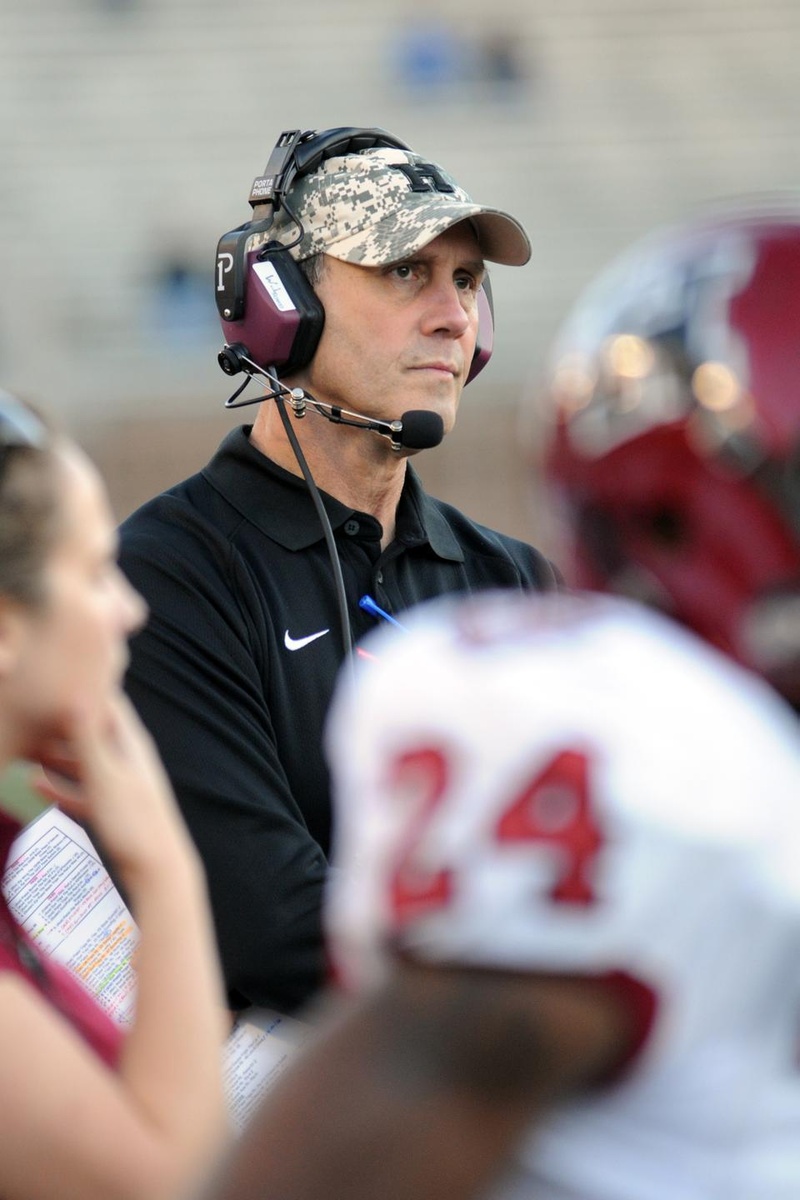For many college athletes, the impending end of their playing careers can bring about a bit of an identity crisis.
But that wasn’t the case for Harvard coach Tim Murphy.
“I was a late bloomer and was not remotely highly recruited—I just had a love of the game,” Murphy says. “I consider myself very fortunate that I knew early on...when my career comes to an end as a player, I don’t want that to be the end of my experience with football.”
And so after a successful playing career at Springfield College, where he was a four-year starter at linebacker, Murphy took his talents from the field to the sideline—and immediately proved that he had a knack for coaching.
After eight seasons as an assistant, Murphy earned his first head-coaching job at Maine in 1987 at just 30 years old, making him the youngest head coach in the country at the time. In his first season, Maine made its first-ever appearance in the NCAA Division I-AA tournament.
Murphy moved to Division I-A two years later, taking over a Cincinnati program that was on probation, hadn’t had a winning season since 1982, and lacked adequate facilities. But in five seasons, Murphy turned the Bearcats from a struggling team to one that finished the 1993 season second in the “Also Receiving Votes” category of the of the USA Today/CNN poll, then the highest ranking in school history.
And that’s when Murphy decided to move on.
“It was difficult to leave because we had pulled off with a really great coaching staff, a great bunch of kids, something that was a real mountain to climb,” he admits. “To go from that to a bowl-caliber team in my tenure, we take great pride in that.”
But the combination of Murphy’s positive experience as an Ivy League assistant coach with Brown and a desire to move back to New England—the home of both Murphy and his wife, Martha—led the coach to Harvard.
“It was...looking back, a great decision,” he says. “Somehow, some things are meant to be.”
17 years later, Murphy has built the Crimson into a perennial powerhouse in the Ivy League.
“Coach Murphy is a great mentor,” junior linebacker Alex Gedeon says. “He has a ton of passion for what he does, and the way he carries himself is a way that I think inspires all of us players to look up to that and try to be like that someday.”
The numbers speak for themselves: 110 wins, five titles, two perfect seasons (the first such seasons since 1913), 69 All-Ivy first-team players, 21 alumni advancing to the professional level, and a 0.768 winning percentage from 2000-09, second-best in the FCS.
But what the numbers don’t quite capture is the impact Murphy has had on the character of the Harvard football program.
Making a commitment to developing the student-athlete rather than just the athlete, Murphy boasts a unique accomplishment—every four-year player he has recruited has both graduated and left with at least one Ivy ring.
Read more in Sports
From Ghana and Suriname to Harvard













